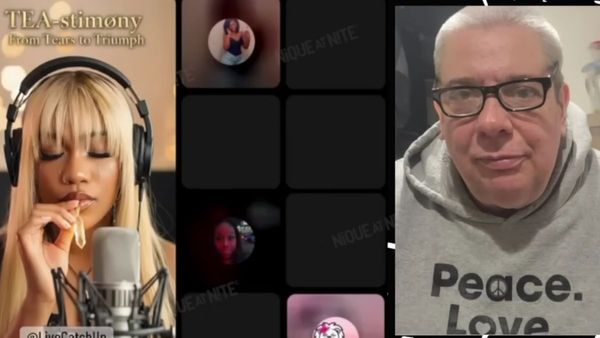
“There he is…” – the exchange begins before I’ve had time to comprehend what is happening.
Marie Golithi Uwisenga, the genocide survivor who had been quietly recounting her harrowing experience, turns and marches towards a wizened old man – lean and stooped and with extraordinarily hollow cheeks – walking slowly up the hill.
She extends her hand towards his in an apparent gesture of friendship.
But it is not. The next words are spat in his direction.
“This is the one who killed my family…”
She holds his hand still.
This is how it is in Rwanda. Because this is how it was. Neighbours killed neighbours, colleagues killed colleagues, teachers killed students.
And this is how it is now. A peace of sorts, an uneasy reconciliation and an acknowledgement; a forgiveness, but never a forgetting.
Those neighbours are neighbours still, colleagues still: people live next door to those they know were involved in the mob attacks that killed their entire families. They shop at their stores, pray beside them in church. People have found a way to carry on, to forgive, it seems, to the extent that they must to survive, but the enormity of what they suffered lives on.
As Golithi holds his hand, the man, whose name is Manassé Musabyimana, does not resist or rebut her tirade. He tries to hold her gaze, but then drops his eyes, downcast. Manassé, I would learn later, says he did not kill anyone himself during the attacks but feels complicit because he was part of the mob
I’ve never seen such shame in a human being’s face.
He walks on softly up the road.
Rwandans shake hands often, and hug easily. Golithi shows us, invites us to touch, the rough scar on her leg, a machete wound. She lost 14 relatives in the genocide, she says. They are buried together beside her home.
As we stand on the roadside, Golithi introduces a cousin, who is missing a thumb. She nods towards the church where Manassé is now praying.
The 1994 genocide against the Tutsi in Rwanda, three decades distant, is everywhere and nowhere in this place.
The old ethnic divisions of Hutu and Tutsi have been, officially at least, erased, replaced by a government-enforced spirit of “national unity”. That there is a political dimension to this is undoubted, but that doesn’t mean it is not also genuine: Rwandans know the very worst of what the opposite of unity can look like. Contributing, too, to the erasure is the fact that much of Rwanda’s young population was not yet born when the genocide occurred.
But the memorials in the cities and villages are tangible reminders. There are the formal ceremonies of kwibuka (remembrance). And the genocide lives in the memories and hearts of so many still. They carry the scars and the disfigurements of it on their bodies, they live with the stunted family trees – stripped of parents, grandparents, sisters and brothers, and all who might have followed had those people lived.
And, like Golithi, they live alongside those responsible.
Much of Rwanda’s reconciliation is articulated in Christian values of forgiveness and of repentance. But when the crime is so monstrous, the consequences so eternal … perhaps reconciliation is always imperfect, forever incomplete. Manassé has sought, and been granted, absolution by Golithi, but the pain is still overwhelming sometimes.
In other cases the line between victim and perpetrator is impossibly fine, even indivisible.
I sit and speak with a priest, who recounts how he tried to hide a Tutsi woman in his house so she would not be killed. He says suspicious Hutu militia searched his house and found her – “she was behind that door,” he says, pointing, as we sit in his front room.
He says that the militiamen forced him to kill her, threatening to kill him and his wife if he did not prove his loyalty. He says he took the woman outside and hacked her to death. “So I am also a genocidaire,” he says, sadly.
A day after he tells me this story, I hear the pastor preach about the ongoing project that is national reconciliation of a nation so brutally torn apart.
I meet, too, with Manassé, the man Golithi upbraided for his involvement in mob attacks that killed her family. We walk to a quiet forest. He doesn’t want to be overheard talking about the crimes he was involved in, for which he was sentenced and spent nearly two decades in prison.
He sorrowfully admits to being part of a mob that attacked Golithi’s family, and to manning a roadblock where Tutsi were killed. He is haunted by what he did. Golithi and Manassé are inextricably bound by that.
I visit the bend in the road where the roadblock once stood. They both pass it each day. Now, there is nothing there.
The Four Corners documentary The Wanted is available to watch on ABCiview







